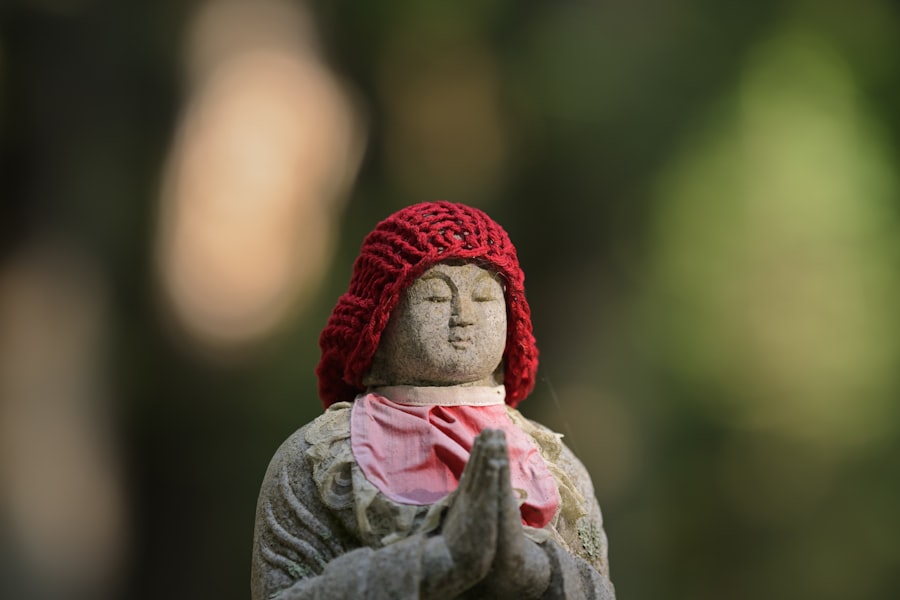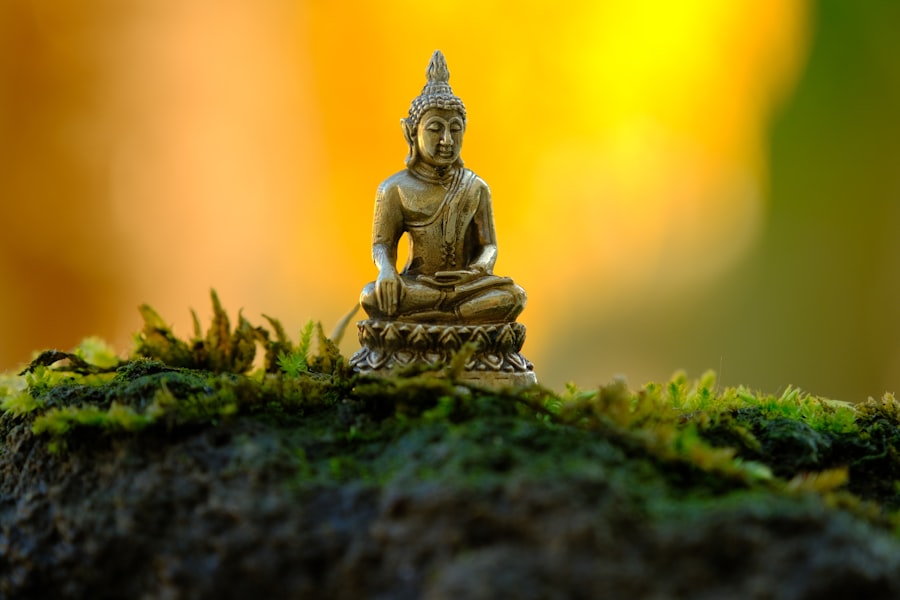Authenticity is a cornerstone of a fulfilling spiritual journey. When you embrace your true self, you create a foundation for genuine growth and transformation. This authenticity allows you to connect deeply with your beliefs, values, and experiences, fostering a sense of belonging within yourself and the universe.
It is essential to recognize that authenticity is not merely about being true to yourself; it is also about being honest with others and the world around you. When you live authentically, you invite others to do the same, creating a ripple effect that can inspire collective growth. Moreover, authenticity empowers you to navigate the complexities of life with clarity and purpose.
In a world filled with distractions and societal expectations, staying true to your essence can be challenging. However, when you prioritize authenticity, you cultivate resilience against external pressures. You learn to trust your intuition and inner wisdom, which guides you toward choices that align with your true self.
This alignment not only enhances your spiritual practice but also enriches your overall life experience, allowing you to engage with the world from a place of sincerity and integrity.
Key Takeaways
- Authenticity is important in spiritual practice as it allows for genuine connection and growth.
- Social conditioning can impact spiritual beliefs, and recognizing this influence is crucial for personal growth.
- Embracing vulnerability in spiritual practice can lead to deeper connections and understanding.
- Honoring your unique spiritual path is essential for personal growth and fulfillment.
- Letting go of comparison and competition in spiritual growth allows for a more authentic and fulfilling journey.
Recognizing the Impact of Social Conditioning on Spiritual Beliefs
Social conditioning plays a significant role in shaping your spiritual beliefs and practices. From a young age, you are exposed to various cultural norms, religious teachings, and societal expectations that influence how you perceive spirituality. These external factors can create a framework that may not resonate with your inner truth.
Recognizing this impact is crucial for your spiritual growth, as it allows you to discern which beliefs are genuinely yours and which have been imposed upon you by society. As you begin to peel back the layers of social conditioning, you may discover that some of your beliefs no longer serve you. This realization can be both liberating and daunting.
It invites you to question long-held assumptions and explore alternative perspectives that align more closely with your authentic self. By engaging in this process of self-exploration, you can reclaim your spiritual autonomy and cultivate a belief system that reflects your unique experiences and insights. This journey of self-discovery not only deepens your understanding of spirituality but also empowers you to live more authentically.
Embracing Vulnerability in Your Spiritual Practice

Vulnerability is often seen as a weakness, but in the realm of spirituality, it is a powerful catalyst for growth. When you allow yourself to be vulnerable, you open the door to deeper connections with yourself and others. Embracing vulnerability in your spiritual practice means acknowledging your fears, doubts, and insecurities while also recognizing that these feelings are part of the human experience.
By doing so, you create space for healing and transformation. Incorporating vulnerability into your spiritual practice can take many forms. It might involve sharing your struggles with a trusted friend or mentor, journaling about your fears, or participating in group discussions where you can express your authentic self without judgment.
Each act of vulnerability strengthens your connection to your inner self and fosters a sense of community with others on similar journeys. As you embrace this openness, you may find that it leads to profound insights and breakthroughs in your spiritual growth.
Honoring Your Own Unique Spiritual Path
| Aspect | Metric |
|---|---|
| Self-reflection | Hours spent in self-reflection |
| Personal rituals | Number of personal rituals practiced |
| Community involvement | Events attended within spiritual community |
| Learning | Books read or courses taken related to spiritual growth |
Every individual’s spiritual journey is distinct, shaped by personal experiences, beliefs, and aspirations. Honoring your unique path means recognizing that there is no one-size-fits-all approach to spirituality. It encourages you to explore various practices, philosophies, and traditions while remaining true to what resonates with your heart and soul.
This exploration can be both exciting and daunting, as it requires you to step outside the confines of conventional beliefs and embrace the unknown. As you honor your unique spiritual path, it’s essential to cultivate an attitude of curiosity and openness. Allow yourself to experiment with different practices—meditation, prayer, nature walks, or creative expression—without the pressure of conforming to any specific framework.
This freedom enables you to discover what truly nourishes your spirit and fosters a deeper connection with yourself and the universe. Remember that honoring your path is not about perfection; it’s about embracing the journey itself and celebrating the lessons learned along the way.
Letting Go of Comparison and Competition in Spiritual Growth
In a world dominated by social media and constant connectivity, it’s easy to fall into the trap of comparison and competition in your spiritual journey. You may find yourself measuring your progress against others or feeling inadequate because someone else seems to be further along their path. However, this mindset can hinder your growth and lead to feelings of frustration or self-doubt.
Letting go of comparison is essential for cultivating a healthy relationship with your spirituality. To release the grip of comparison, focus on your own journey and celebrate your achievements—no matter how small they may seem. Acknowledge that everyone’s path is unique, shaped by individual experiences and lessons.
Instead of viewing others as competitors, see them as fellow travelers on their own journeys. By fostering a sense of community rather than competition, you can create an environment that encourages mutual support and inspiration. This shift in perspective allows you to embrace your spiritual growth authentically without the burden of comparison.
Cultivating Self-Acceptance and Self-Compassion

Self-acceptance and self-compassion are vital components of a healthy spiritual practice. As you navigate the complexities of life, it’s essential to treat yourself with kindness and understanding rather than judgment or criticism. Embracing self-acceptance means acknowledging both your strengths and weaknesses without striving for perfection.
It allows you to honor your humanity while recognizing that growth is a continuous process. Practicing self-compassion involves being gentle with yourself during challenging times. Instead of berating yourself for perceived failures or shortcomings, offer yourself the same kindness you would extend to a friend in need.
This compassionate approach fosters resilience and encourages you to learn from setbacks rather than dwell on them. By cultivating self-acceptance and self-compassion, you create a nurturing environment for your spiritual growth, allowing yourself the grace to evolve at your own pace.
Embracing Imperfection and Growth in Your Spiritual Journey
Imperfection is an inherent part of the human experience, yet many people strive for an unattainable ideal in their spiritual practices. Embracing imperfection means recognizing that growth often comes from moments of struggle and uncertainty.
This shift in perspective allows you to approach your spiritual journey with an open heart and mind. As you embrace imperfection, remember that growth is not linear; it often involves setbacks and detours along the way. Allow yourself the freedom to explore different paths without fear of failure or judgment.
Each experience contributes to your understanding of spirituality and helps shape who you are becoming. By accepting imperfection as part of the journey, you cultivate resilience and adaptability—qualities that will serve you well as you navigate the ever-evolving landscape of your spiritual life.
Building Authentic Connections with Others on a Spiritual Path
Building authentic connections with others who share similar spiritual interests can enhance your journey significantly. These connections provide opportunities for mutual support, encouragement, and shared learning experiences. When you engage with like-minded individuals, you create a sense of community that fosters growth and exploration.
Authentic relationships allow for open dialogue about beliefs, practices, and challenges without fear of judgment. To cultivate these connections, seek out groups or communities that resonate with your values and interests. Attend workshops, retreats, or local gatherings where individuals come together to share their spiritual journeys.
Be open to forming friendships based on shared experiences rather than superficial similarities. As these connections deepen, they can provide invaluable insights and perspectives that enrich your understanding of spirituality while reminding you that you are not alone on this path.
Finding Strength in Authenticity During Challenges and Setbacks
Life is filled with challenges that can test your resolve and commitment to your spiritual journey. During these times, finding strength in authenticity becomes crucial. When faced with adversity, returning to your true self can provide clarity and guidance on how to navigate difficult situations.
Embracing authenticity allows you to confront challenges head-on rather than avoiding or suppressing them. In moments of struggle, remind yourself of the values and beliefs that anchor you in times of uncertainty. Lean into your authentic self for support; trust that it holds the wisdom needed to guide you through tough times.
By acknowledging your feelings—whether they be fear, sadness, or frustration—you create space for healing and growth. This process not only strengthens your resilience but also deepens your connection to your spiritual path.
Embracing Authenticity in Your Spiritual Practices and Rituals
Your spiritual practices should reflect who you are at your core; they should resonate with your beliefs and values rather than conforming to external expectations. Embracing authenticity in your rituals means creating practices that feel genuine and meaningful to you personally. Whether it’s through meditation, prayer, or creative expression, allow yourself the freedom to explore what truly nourishes your spirit.
Consider incorporating elements into your rituals that resonate with your unique experiences—perhaps using symbols or objects that hold personal significance or creating a space that feels sacred to you. By infusing authenticity into these practices, you cultivate a deeper connection with yourself and the divine. This personalized approach not only enhances the effectiveness of your rituals but also reinforces the importance of being true to yourself in all aspects of life.
Nurturing a Sense of Authenticity in Your Relationship with Higher Power or Source
Your relationship with a higher power or source is deeply personal; it should reflect your beliefs, experiences, and understanding of spirituality. Nurturing authenticity in this relationship involves being honest about how you perceive the divine—whether through prayer, meditation, or contemplation—and allowing yourself to explore what feels right for you without fear of judgment from others. As you deepen this relationship, take time for introspection; ask yourself what spirituality means to you personally and how it aligns with your values.
Engage in practices that foster connection—whether through nature walks, creative expression, or quiet reflection—allowing yourself to feel fully present in each moment. By nurturing authenticity in this relationship, you cultivate a profound sense of belonging within yourself and the universe while honoring the unique path that is yours alone. In conclusion, embracing authenticity on your spiritual journey is essential for personal growth and fulfillment.
By recognizing the impact of social conditioning, embracing vulnerability, honoring your unique path, letting go of comparison, cultivating self-acceptance, embracing imperfection, building authentic connections, finding strength during challenges, infusing authenticity into practices, and nurturing relationships with higher power or source—you create a rich tapestry of experiences that reflect who you truly are at heart. Remember that this journey is yours alone; honor it fully as you continue to evolve into the person you’re meant to be.
In the journey of spiritual growth, authenticity plays a crucial role in ensuring that one’s practices and beliefs are genuinely aligned with their true self. An insightful article on this topic can be found on Unplugged Psych, which delves into the nuances of maintaining authenticity in spirituality. The article emphasizes the importance of self-reflection and staying true to one’s values amidst external influences.




